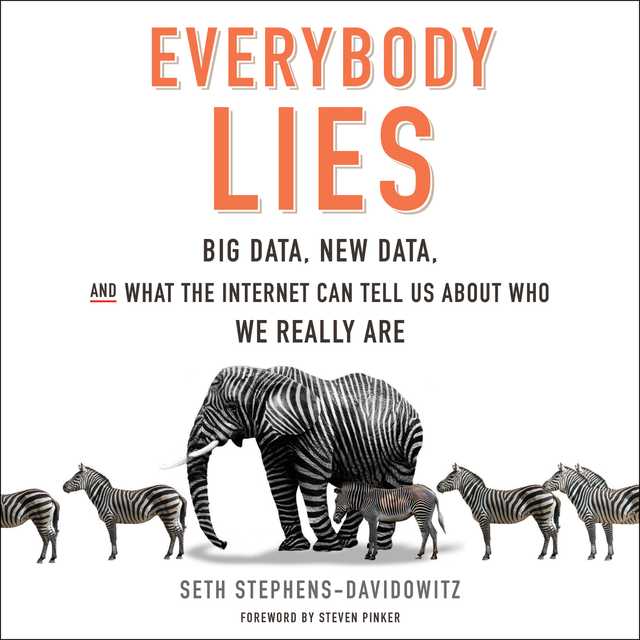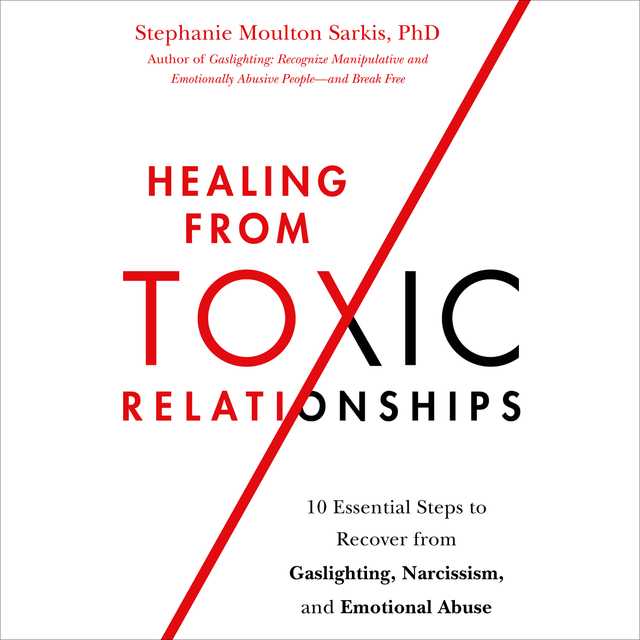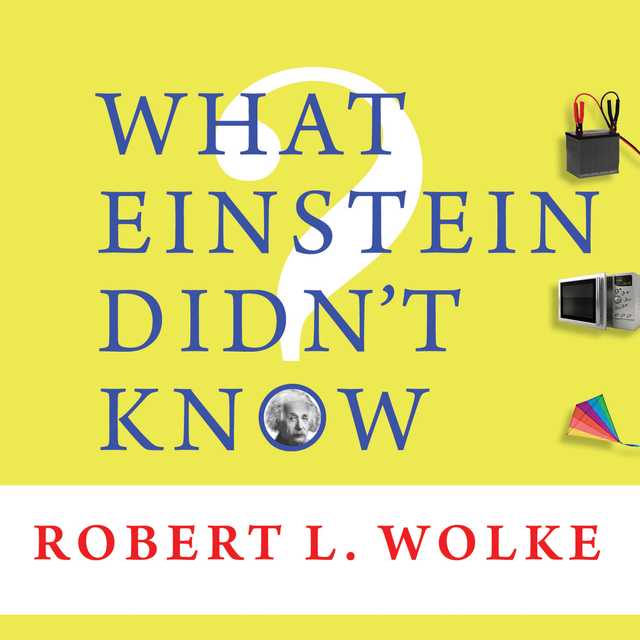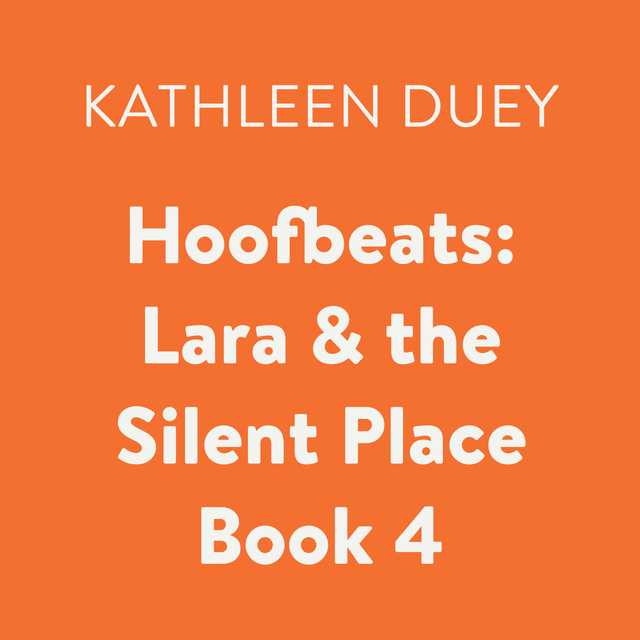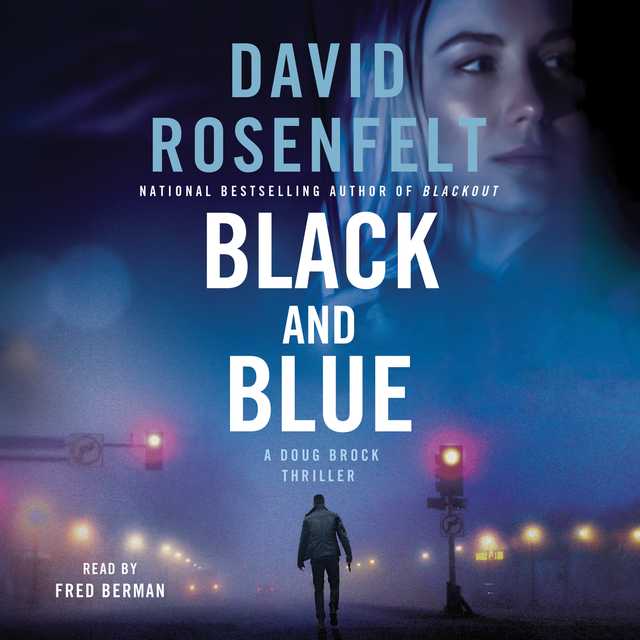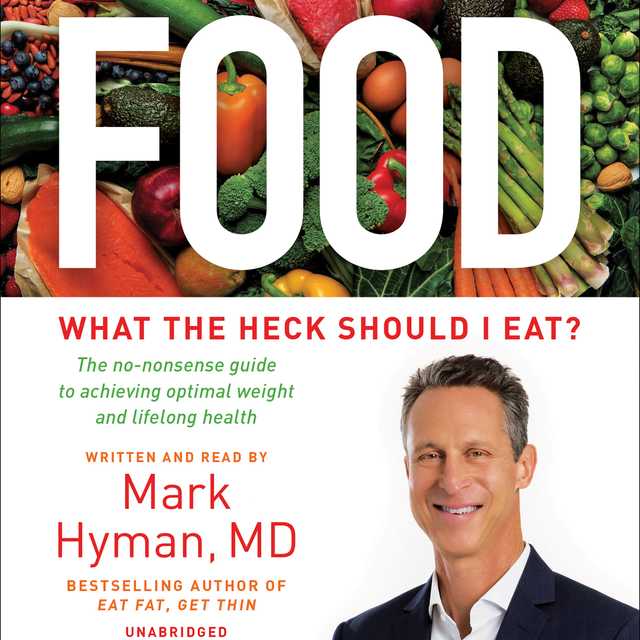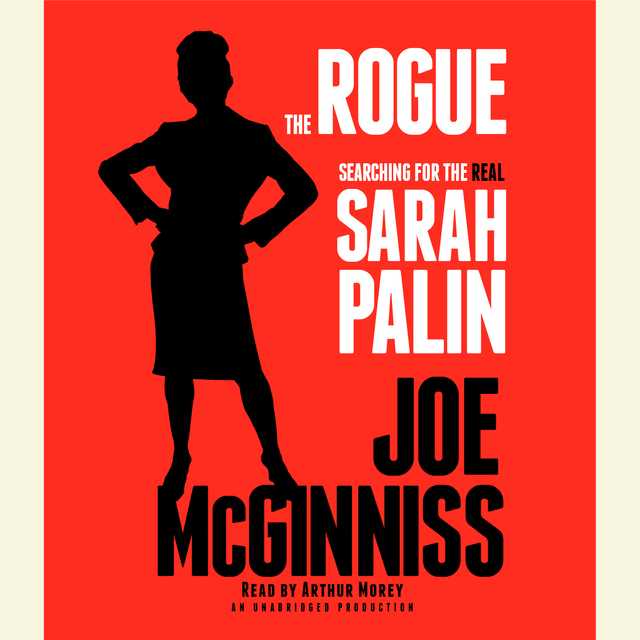Everybody Lies Audiobook Summary
Foreword by Steven Pinker
Blending the informed analysis of The Signal and the Noise with the instructive iconoclasm of Think Like a Freak, a fascinating, illuminating, and witty look at what the vast amounts of information now instantly available to us reveals about ourselves and our world–provided we ask the right questions.
By the end of on average day in the early twenty-first century, human beings searching the internet will amass eight trillion gigabytes of data. This staggering amount of information–unprecedented in history–can tell us a great deal about who we are–the fears, desires, and behaviors that drive us, and the conscious and unconscious decisions we make. From the profound to the mundane, we can gain astonishing knowledge about the human psyche that less than twenty years ago, seemed unfathomable.
Everybody Lies offers fascinating, surprising, and sometimes laugh-out-loud insights into everything from economics to ethics to sports to race to sex, gender and more, all drawn from the world of big data. What percentage of white voters didn’t vote for Barack Obama because he’s black? Does where you go to school effect how successful you are in life? Do parents secretly favor boy children over girls? Do violent films affect the crime rate? Can you beat the stock market? How regularly do we lie about our sex lives and who’s more self-conscious about sex, men or women?
Investigating these questions and a host of others, Seth Stephens-Davidowitz offers revelations that can help us understand ourselves and our lives better. Drawing on studies and experiments on how we really live and think, he demonstrates in fascinating and often funny ways the extent to which all the world is indeed a lab. With conclusions ranging from strange-but-true to thought-provoking to disturbing, he explores the power of this digital truth serum and its deeper potential–revealing biases deeply embedded within us, information we can use to change our culture, and the questions we’re afraid to ask that might be essential to our health–both emotional and physical. All of us are touched by big data everyday, and its influence is multiplying. Everybody Lies challenges us to think differently about how we see it and the world.
Other Top Audiobooks
Everybody Lies Audiobook Narrator
Timothy Andres Pabon is the narrator of Everybody Lies audiobook that was written by Seth Stephens-Davidowitz
Seth Stephens-Davidowitz is a contributing op-ed writer for the New York Times, a lecturer at The Wharton School, and a former Google data scientist. He received a BA from Stanford and a PhD from Harvard. His research has appeared in the Journal of Public Economics and other prestigious publications. He lives in New York City.
About the Author(s) of Everybody Lies
Seth Stephens-Davidowitz is the author of Everybody Lies
More From the Same
- Author : Seth Stephens-Davidowitz
- Don’t Trust Your Gut
- Publisher : HarperAudio
- Abraham
- American Gods [TV Tie-In]
- Dead Ringer
- House of Sand and Fog
- Prey
Everybody Lies Full Details
| Narrator | Timothy Andres Pabon |
| Length | 7 hours 39 minutes |
| Author | Seth Stephens-Davidowitz |
| Category | |
| Publisher | HarperAudio |
| Release date | May 09, 2017 |
| ISBN | 9780062563538 |
Subjects
The publisher of the Everybody Lies is HarperAudio. includes the following subjects: The BISAC Subject Code is Computers, Data Mining, Databases
Additional info
The publisher of the Everybody Lies is HarperAudio. The imprint is HarperAudio. It is supplied by HarperAudio. The ISBN-13 is 9780062563538.
Global Availability
This book is only available in the United States.
Goodreads Reviews
Will
May 05, 2021
…people’s search for information is, in itself, information. When and where they search for facts, quotes, jokes, places, persons, things, or help, it turns out, can tell us a lot more about what they really think, really desire, really fear, and really do than anyone might have guessed. This is especially true since people sometimes don’t so much query Google as confide in it: “I hate my boss.” “I am drunk.” “My dad hit me.” There’s lies, damned lies and then there are statistics. One must wonder. Do the lies get bigger as the datasets grow? Seth Stephens-Davidowitz posits that the availability of vast sums of new data not only allows researchers to make better predictions, but offers them never-before-available tools that can offer insight that direct questioning never could.We have seen steps up of this type before. Malcolm Gladwell has made a career of such, with Blink, Outliers, and The Tipping Point. Freakonomics is the one I would expect most folks would know. Nate Silver put his data expertise into The Signal and the Noise. All these looks at data and how we interpret it rely on the analyst, regardless, pretty much, of the data. While the same might be true of Stephens-Davidowitz’s approach, he focuses on the availability of materials that have not been there in the past. The smarts that must be applied to get the most interesting results can now be applied to new oceans of data. It is more possible than it has ever been to draw inferences and actually test them out. In addition to the volume of data that is now available, there is the sort. The author looks at Google and FB data for evidence of underlying realities. Surveys can sometimes offer inaccurate outcomes, when the people being queried do not provide honest answers. Are you a racist? Yes/No. But one can look at what people enter into Google to get a sense of possible racism by geographic area. The everyday act of typing a word or phrase into a compact rectangular white box leaves a small trace of truth that, when multiplied by millions, eventually reveals profound realities. Looking for queries on jokes involving the N-Word, for example, turns out to yield a telling portrait of anti-black sentiment, which also correlates with lower black life expectancy. (And pro-Trump vote totals) We are treated to looks into a variety of research subjects, from picking the ponies, to seeing what really interests/concerns people sexually, looking for patterns of child abuse, selecting the best wine, using the texts of a vast number of books and movie scripts to come up with six simple plot structures.I thought the most interesting piece was on the use of associations, and provoking curiosity, rather than relying on overt statements to influence how people feel about a different group of people. Another was on using a data comparison of one’s (anonymous) medical information to others who share many characteristics to improve medical diagnoses.There are some areas in which it was not entirely persuasive that the methodology in question was tracking what was claimed. SS-D sees in searches of Pornhub, for example, what people really want and really do, not what they say they want and say they do. Really? I expect that what people check out on-line does not necessarily track with what might be of interest in real life. It would be like someone with an interest in mysteries being thought to have homicidal tendencies after searching for a variety of homicide related titles. Should a writer doing research into a dark subject like child pornography, human trafficking or cannibalism expect the heavy knock of the police on his/her door? Where is the line between an academic or titillation search and one made for planning?SS-D makes a point about there being a significant difference between searches that offer projections for groups or areas, and their inapplicability for predicting individual behavior, although that will not necessarily remain the case. In baseball, for example, the explosion of available information may very well be applied to specific players to diagnose and even correct flaws in technique, or recognize patterns that might expose underlying medical issues, or predict their arrival. The Big Data related here is much more macro, looking at group proclivities. Useful for spotting trends, measuring public sentiment, but in more detail than has been heretofore possible.And of course there is the impact of dark players. Those with the resources and motivation could manipulate the Big Data produced by Google and Facebook. Such players would not necessarily be limited to Russian cyber-spies and pranksters, but corporate and ideological players as well, like Robert Mercer. There could have been a bit more in here on those concerns.The book offers plenty of anecdotal bits that could have been lifted from any of the other data books noted at the top of this review. What one needs, ultimately is smart, insightful analysis. Having all the data in the world (that means you, NSA) is merely a burden unless there is someone insightful enough to figure out the right questions to ask, and how to ask them.SS-D notes several Google (Trends, Ngrams, Correlate) services that might be familiar to folks doing actual research, but which were news to me. It might be useful to check out some of these, maybe even come up with meaningful queries to shed light on pressing, or even completely frivolous questions.Not all problems can be solved, or even examined by the addition of ever more data. Sometimes, many times, the information that is available is perfectly sufficient to the task, but other factors prevent the joining together of its various pieces to create a meaningful whole. The now classic example is from 9/11, when an absence of coordination between the CIA and FBI resulted in suicide bombers who could have been foiled succeeding in their mission. Politics and the culture of nations and organizations figure into how data is usedSo if everybody lies, is Seth Stephens-Davidowitz telling us the truth? I am sure there is a query one could construct that would look at diverse data sources, pull them all together and give us a fuller picture, but for now, we will have to make do with reading his book and articles, checking out his videos, applying the analytical tools already incorporated into our brains, and seeing if there is enough information there with which to come to a well-grounded conclusion. And that’s no lie. Review first posted – May 5, 2017Publication date – May 9, 2017=============================EXTRA STUFFLinks to the author’s personal, Twitter, and FB pagesVIDEOS – SS-D speaking----- Stanford Seminar - Insights with New Data: Using Google Search Data-----Google Sex with Seth Stephens-Davidowitz - Arts & Ideas at the JCCSF----- Big Data and the Social Sciences - The Julis-Rabinowitz Center for Public Policy and FinanceThe June 2017 National Geographic cover story has particular relevance to the treatment of actual truth in today's political environment. It is illuminating, if not exactly uplifting. - Why We Lie: The Science Behind Our Deceptive Ways - By Yudhijit BhattacharjeeJuly 12, 2017 - Washington Post - one of the very serious applications of big data - The investigation goes digital: Did someone point Russia to specific online targets? - by Philip BumpJuly 15, 2017 - One of the ways big data gets compromised is via automated dishonesty - Please Prove You’re Not a Robot by Tim Wu - Thanks to Henry B for letting us know about the article
David
January 21, 2018
This is an engaging book about how big data can be used to improve our understanding of human behavior, thinking, emotions, and preference. The basic idea is that if you ask people about their behavior or their preferences in surveys, even anonymous surveys, they will often lie. People do not like to admit to low-brow preferences; racists do not want to admit to their prejudices, most people who watch pornography do not want to admit to it, and even voting is often misrepresented; some people who voted for Trump would not admit to it. But, by analyzing immense datasets from Google, public archives, social media, and the like, Seth Stephens-Davidowitz has been able to unearth a lot of fascinating answers to puzzling questions. For example, he is able to predict, through Google searches for various symptoms, who is likely to have early stages of pancreatic cancer. He can predict epidemic breakouts of some contagious diseases well before they are announced by the CDC (Center for Disease Control). He shows that the single factor that correlates with voting for Trump is that of racism.Then there are the fun factoids, about the sorts of things that people search for most often on Google. Most commonly, the search "Is my son ..." is followed by "gifted", while the search "Is my daughter ..." is followed by "overweight". That tells us something about stereotypes for the way people think about their children. Interestingly, the release of a new violent movie in a city is correlated with a decrease in violent crime in that city. Perhaps the reason is that violent people who are watching the movie are not out on the streets, committing crimes.And here we get to the main problem with this sort of analysis. Undoubtedly, the research and analysis of big datasets is done correctly. However, once a surprising result is found, understanding the motivations behind the online activity are often subjective and open to interpretation. While this book is very careful about its underlying assumptions, it is a slippery road to getting the correct interpretations and explanations.This is an easy, well-paced book that should appeal to anybody who enjoys books like Freakonomics: A Rogue Economist Explores the Hidden Side of Everything.
Eli
December 30, 2019
such an interesting book, it broaden my views, i'm looking forward to read more books of the author
Jim
April 17, 2018
I am now convinced that Google searches are the most important data set ever collected on the human psyche. writes the author early on & he shows why. (Google trends is available to all here: https://trends.google.com/trends/) He also checked other big data sets including Wikipedia, Facebook, Pornhub, & even Stormfront, the largest racist site. What he found was really interesting & it will help harden the soft, social sciences. It's a new frontier. He points out problems with traditional reporting. In the section about child abuse & abortions, Google searches suggest that child abuse does increase during economic downturns while gov't figures incorrectly show little change. Closing abortion clinics doesn't stop them, it simply leads to more self-induced abortions. Both happen off the books, but there is now convincing supporting data to show us what we need to address & make more informed decisions with resources.Big data has an advantage over every other type of survey because few realize it is being collected, so we don't lie to make ourselves look better. It's also anonymous & aggregate, so caution needs to be used when forming conclusions. For instance, based on Pornhub searches, the author concludes that about 5% of men are gay because they searched for gay porn. That seemed a reasonable conclusion until he pointed out that 15% of women search for rape porn. Does that mean they want to be raped? The author says of course not & makes a big deal out of the difference between fantasy & reality. That makes me question his first conclusion, although it seems about right.Gut reactions are often wrong & he provides several examples where it's wrong due to cognitive biases. He also points out "The Curse of Dimensionality". Given large enough sets of data, there will be correlations just through chance. For instance, there are graphs that show how closely autism diagnoses track with organic food sales or Jenny McCarthy's popularity. Separating these out is a whole other problem.Big Data only gives us trends that we need to examine. We can't use it on the individual level. While 1000 people searched for how to kill their girl friend, only 1 girl was killed in his example. That's horrific & might have been stopped if someone had looked at his search history, but do we give up everyone's privacy for a 1 in 1000 chance that we might prevent a murder? Some might be willing, but I'm not, so we also have new questions to address.The audio book was well narrated & I didn't miss the graphs too much. They're provided in the extra material, but weren't handy when I was listening & the book took that into account for the most part. Highly recommended in either format.
Atila
June 12, 2017
Acertei em cheio nessa leitura! Seth Stephens-Davidowitz apresenta uma análise de como as pessoas se comportam, na mesma linha do The Signal and the Noise: Why So Many Predictions Fail - But Some Don't e do Dataclisma: Quem somos quando achamos que ninguém está vendo. Mas enquanto Signal and the Noise fala de tendências de dados e Dataclisma fala do comportamento das pessoas dentro do OkCupid!, Everybody Lies fala de como as pessoas se comportam em geral.O autor usa uma série de dados de forma bastante inovadora, como tendências de buscas no Google (onde ele trabalha), buscas no PornHub, Facebook e outras fontes de big data para fazer o que ele chama de "sociologia de verdade" ou sociologia baseada em evidências. Os dados que ele mostra sobre preconceito (buscas por temas preconceituosos), insegurança de auto-imagem, inseguranças em relação aos filhos e afins mostram uma imagem bem mais crua e feia da sociedade do que o que pintamos com postagens em Facebook e Instagram. Outros revelam informações no mínimo interessantes, sobre a diferença que se formar em Harvard pode fazer (nenhuma, o ponto parece estar em quem se forma), onde criar os filhos, como aumentar as chances de sucesso em um encontro... O livro lembra bastante uma versão mais nova e, na minha opinião, mais curiosa da abordagem inovadora de Freakonomics.Se você não está interessado na revolução que o registro e a disponibilidade de dados está causando no mundo, e no estrago que empresas e governos conseguem fazer com o controle que têm sobre a informação, no mínimo vai curtir o livro pelos fatos curiosos e mórbidos que ele levanta dos dados. Saber por exemplo que o número de homens que buscam como fazer bem sexo oral nas mulheres é o mesmo que busca por como fazer sexo oral em si mesmo fala muito sobre como as pessoas pensam. Um livro para todos os gostos.
Emma Deplores Goodreads Censorship
September 21, 2017
3.5 starsThis is an engaging and informative book about the huge amount of data available online and what it tells us about society. I read it alongside Dataclysm and found Everybody Lies to be by far the better of the two, presenting a wealth of information in a cohesive fashion and making fewer unfounded assumptions. The author was a data scientist at Google, and draws in large part on the searches people make on the site, along with information from sites including Facebook and Pornhub.There’s a lot of interesting stuff in the data, from the rate of racist searches in the rust belt predicting the rise of Donald Trump, to common body anxieties and whether they actually matter to the opposite sex, to an estimate of how many men are gay and whether that varies by geography (it appears not), to rates of self-induced abortions. This is a great book to read if you love unusual factoids, whether on sexual proclivities or how sports fans are made. The author also writes in a compelling way about the uses of Big Data itself, and while he waxes evangelical about it (evidently preferring to spend all his time immersed in statistically significant data, he finds novels and biographies too “small and unrepresentative" and therefore uninteresting), there are certainly a lot of possibilities there. In health, for instance, compiling early searches about symptoms with later searches for how to handle a diagnosis can help doctors detect pancreatic cancer at an earlier stage, while epidemics can be tracked through symptom searches. The author is also interested in how applying data can revolutionize a field, discussing at length the data that predicted the success of the racehorse American Pharaoh. (By "at length" I mean 9 pages; this is a book that moves through a broad range of topics quickly.)Overall, the writing is engaging and the book hangs together well, being informative while mostly resisting the urge to speculate. But the author does make a couple of assumptions worth pointing out. One is that people’s Google searches are made in earnest and for personal reasons. Certainly, you might search for “depression symptoms” out of concern that you or someone you know is depressed. But you also might want to be prepared in advance to identify warning signs, or might have encountered something in the media that sparked your interest, or you might be a student writing a paper on the topic. On the other hand, if you’re intimately familiar with depression already, you’re unlikely to google the symptoms. None of this means the author’s finding a 40% difference in rates of depression symptom searches between Chicago and Hawaii isn’t relevant, but data that’s both over- and under-inclusive serves better as a starting point for research than a definitive conclusion. It's certainly not proof that better geography is twice as effective as antidepressants, as the author suggests.The other assumption is that everybody lies: the book insists on it, based largely on the fact that typically rosy social media posts fail to reflect all those unhappy or hateful searches. Selectively sharing information doesn’t necessarily seem to me to be lying, but the author appears invested in proving the book’s title. For instance, he discusses a particular type of tax fraud: in areas where few tax professionals or people eligible for the scheme live, 2% of people who could benefit from this lie tell it, while in areas with high concentrations of both, the rate of cheating is around 30%. The author concludes that “the key isn’t determining who is honest and who is dishonest. It is determining who knows how to cheat and who doesn’t.” This bleak view of the world fails to account for the 70% who don’t cheat even in areas with high levels of knowledge; finding that significant numbers of people cheat if they know how is a far cry from finding that everyone does.So, like the author of Dataclysm, Stephens-Davidowitz is probably a better statistician than sociologist. But if you’re interested in Big Data, or in getting a peek at the thoughts and anxieties people ask Google about because they’re not comfortable sharing with others, this is the book I recommend. You’ll certainly get a lot of interesting tidbits from it, along with perhaps new inhibitions about typing things into Google!
Most Popular Audiobooks
Frequently asked questions
Listening to audiobooks not only easy, it is also very convenient. You can listen to audiobooks on almost every device. From your laptop to your smart phone or even a smart speaker like Apple HomePod or even Alexa. Here’s how you can get started listening to audiobooks.
- 1. Download your favorite audiobook app such as Speechify.
- 2. Sign up for an account.
- 3. Browse the library for the best audiobooks and select the first one for free
- 4. Download the audiobook file to your device
- 5. Open the Speechify audiobook app and select the audiobook you want to listen to.
- 6. Adjust the playback speed and other settings to your preference.
- 7. Press play and enjoy!
While you can listen to the bestsellers on almost any device, and preferences may vary, generally smart phones are offer the most convenience factor. You could be working out, grocery shopping, or even watching your dog in the dog park on a Saturday morning.
However, most audiobook apps work across multiple devices so you can pick up that riveting new Stephen King book you started at the dog park, back on your laptop when you get back home.
Speechify is one of the best apps for audiobooks. The pricing structure is the most competitive in the market and the app is easy to use. It features the best sellers and award winning authors. Listen to your favorite books or discover new ones and listen to real voice actors read to you. Getting started is easy, the first book is free.
Research showcasing the brain health benefits of reading on a regular basis is wide-ranging and undeniable. However, research comparing the benefits of reading vs listening is much more sparse. According to professor of psychology and author Dr. Kristen Willeumier, though, there is good reason to believe that the reading experience provided by audiobooks offers many of the same brain benefits as reading a physical book.
Audiobooks are recordings of books that are read aloud by a professional voice actor. The recordings are typically available for purchase and download in digital formats such as MP3, WMA, or AAC. They can also be streamed from online services like Speechify, Audible, AppleBooks, or Spotify.
You simply download the app onto your smart phone, create your account, and in Speechify, you can choose your first book, from our vast library of best-sellers and classics, to read for free.
Audiobooks, like real books can add up over time. Here’s where you can listen to audiobooks for free. Speechify let’s you read your first best seller for free. Apart from that, we have a vast selection of free audiobooks that you can enjoy. Get the same rich experience no matter if the book was free or not.
It depends. Yes, there are free audiobooks and paid audiobooks. Speechify offers a blend of both!
It varies. The easiest way depends on a few things. The app and service you use, which device, and platform. Speechify is the easiest way to listen to audiobooks. Downloading the app is quick. It is not a large app and does not eat up space on your iPhone or Android device.
Listening to audiobooks on your smart phone, with Speechify, is the easiest way to listen to audiobooks.

